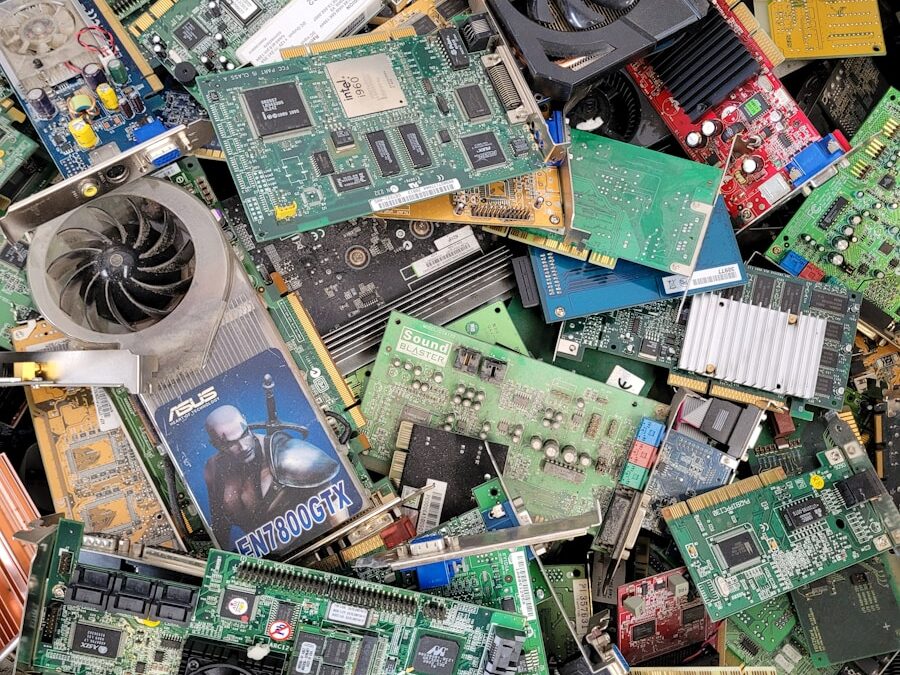Leveraging Smart Waste Management Systems for Sustainable Urban Development
Transforming Waste Management with Technology
The integration of smart waste management systems is becoming increasingly essential for the sustainability goals of smart cities, particularly in rapidly developing regions such as Saudi Arabia and the UAE. These systems utilize cutting-edge technologies like Artificial Intelligence (AI), the Internet of Things (IoT), and blockchain to enhance efficiency, reduce costs, and minimize environmental impact. By implementing smart waste management systems, cities like Riyadh and Dubai are setting benchmarks for sustainable urban development. The data-driven approach ensures that waste collection and processing are optimized, significantly reducing the carbon footprint associated with traditional waste management practices.
Incorporating AI in waste management systems allows for real-time monitoring and predictive analytics. Sensors placed in waste bins can monitor fill levels and send alerts when collection is necessary, preventing overflow and reducing unnecessary collection trips. This not only saves fuel and reduces emissions but also ensures cleaner urban environments. Additionally, blockchain technology provides a secure and transparent method for tracking waste from collection to disposal, enhancing accountability and encouraging recycling and responsible waste management practices.
Furthermore, the adoption of smart waste management systems supports broader sustainability goals by integrating with other smart city initiatives. For instance, the data collected can be used to improve urban planning, optimize traffic flows, and enhance public health by reducing pollution. As cities continue to grow and urbanize, the need for efficient and sustainable waste management solutions becomes more critical, making smart waste management systems a cornerstone of modern smart cities.
Enhancing Business Success Through Smart Waste Management
Businesses in Saudi Arabia and the UAE are also recognizing the benefits of smart waste management systems. For mid-level managers and entrepreneurs, implementing these systems can lead to significant cost savings and operational efficiencies. By reducing waste and optimizing resource use, companies can lower their environmental impact while simultaneously boosting their bottom line. Moreover, the data generated by smart waste management systems can provide valuable insights for improving business operations and strategic planning.
Effective communication and leadership skills are crucial for the successful implementation of smart waste management systems in a corporate setting. Executive coaching services can help leaders understand the technology and its benefits, enabling them to drive change and innovation within their organizations. By fostering a culture of sustainability and innovation, businesses can enhance their reputation and competitiveness in the market.
Management consulting firms play a vital role in helping companies navigate the complexities of adopting smart waste management systems. These consultants provide expertise in project management, change management, and technology integration, ensuring a smooth transition and maximizing the benefits of the new systems. In the long run, businesses that invest in smart waste management systems will be better positioned to meet regulatory requirements, reduce operational costs, and contribute to broader sustainability goals.
The Role of Smart Waste Management in Future Cities
As we look to the future, the importance of smart waste management systems will only increase. The rise of the Metaverse and generative AI presents new opportunities for enhancing these systems further. Virtual simulations and AI-driven models can predict waste generation patterns and optimize collection routes, making waste management even more efficient. In addition, the integration of these technologies can support community engagement and education efforts, encouraging citizens to participate in recycling and waste reduction initiatives.
In Saudi Arabia and the UAE, where rapid urbanization and economic growth are prominent, smart waste management systems are not just a necessity but a strategic priority. Cities like Riyadh and Dubai are already leading the way by incorporating these systems into their smart city frameworks. By doing so, they are setting a global example of how technology can drive sustainability and improve the quality of life for urban residents.
Moreover, the commitment to smart waste management aligns with the broader vision of sustainability outlined in initiatives like Saudi Vision 2030 and the UAE’s National Agenda. These strategic plans emphasize the importance of environmental stewardship and the role of technology in achieving sustainable development goals. By investing in smart waste management systems, Saudi Arabia and the UAE are demonstrating their dedication to creating a sustainable and prosperous future for their citizens.
#SmartCities #Sustainability #WasteManagement #SmartWasteManagement #AI #Blockchain #Dubai #Riyadh #UAE #SaudiArabia























